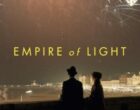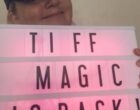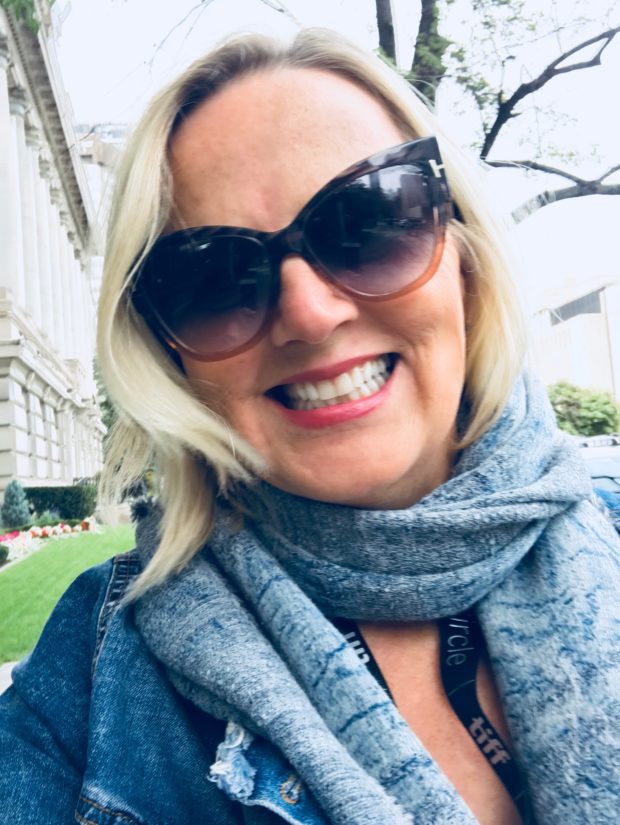
Every year, I listen to filmmakers introduce their films, and dish their art at Q and A sessions, and am reminded: these artists are all infused with hope. The very act of making their film, from whatever corner of the planet they inhabit, is one of crazy mother f—–g courage. Remember what that looks like? Every year I am inspired, just in time, as every student should be at the start of September.
Here are a few of my takeaways from TIFF 2018:
Stay in touch with your college roommates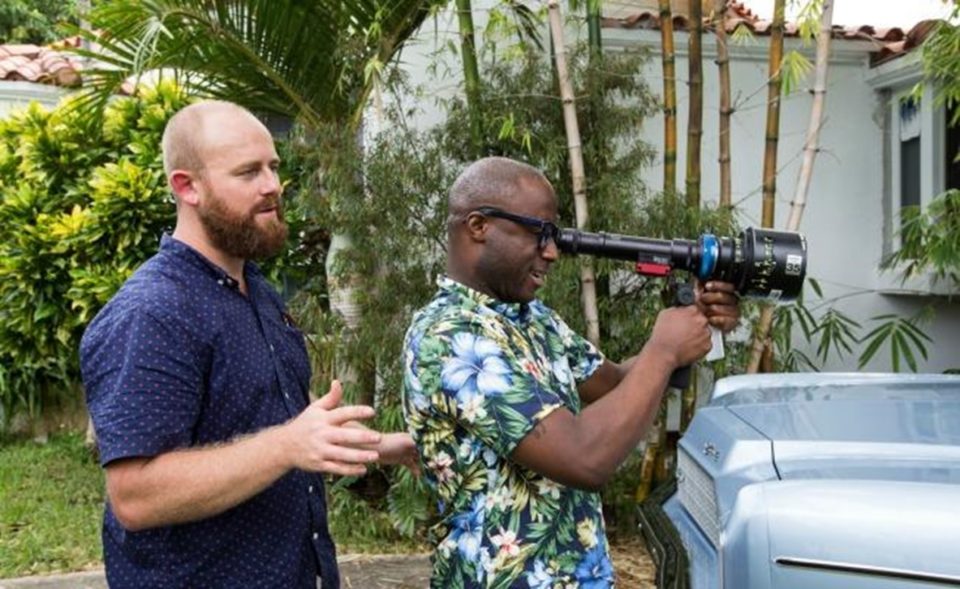
The most compelling on stage moments this year came from the cool intellect of writer/director Barry Jenkins (If Beale Street Could Talk) who talked in detail about his relationship with language, the novelist James Baldwin, and his spectacular creative shorthand with his old roommate, cinematographer James Paxton, who has shot every short and feature Jenkins has made. The result: stunning filmic portraits.
“James and I went to film school together. I’ve known him since I was 20. We were actually roommates. We were those cats who talked shit about the other students who weren’t watching, we were the inner nerds, film school nerds kind of thing; we have this language. James is actually white but he’s become celebrated, because we’ve been working together for so long and most of the stories I tell feature black actors, he has developed an eye and sensitivity to the way—especially the history of emotion in black skin is a very complicated history— and he and I have worked over the years to go against the grain and present black skin and black faces on screen.”
I asked Jenkins what his life is like as a filmmaker after winning the Oscar for Moonlight.
“People return my phone calls now. They reply to my emails now. That’s the biggest thing. But I work with all my friends. My producers are people I went to film school with, my editors are from my film school, my cinematographer etc, so those people have seen me at the lowest level, and seen me being really ridiculous and will tell me You’re being a bit extra right now, you may have won the Oscar but you’re still the same dude. I feel like opportunities are much more readily available. However, I wrote this film in 2013 at the same time I wrote Moonlight so there was no pressure, it was already set in motion. I do whatever I can to get out of the headspace of somebody who has won the Oscar.”
Jenkins is at work on another literary adaptation. His next project is to write and direct a one hour drama series adapted from Colon Whitehead’s bestseller, The Underground Railroad, currently in development at Amazon.
When making a film means survival…
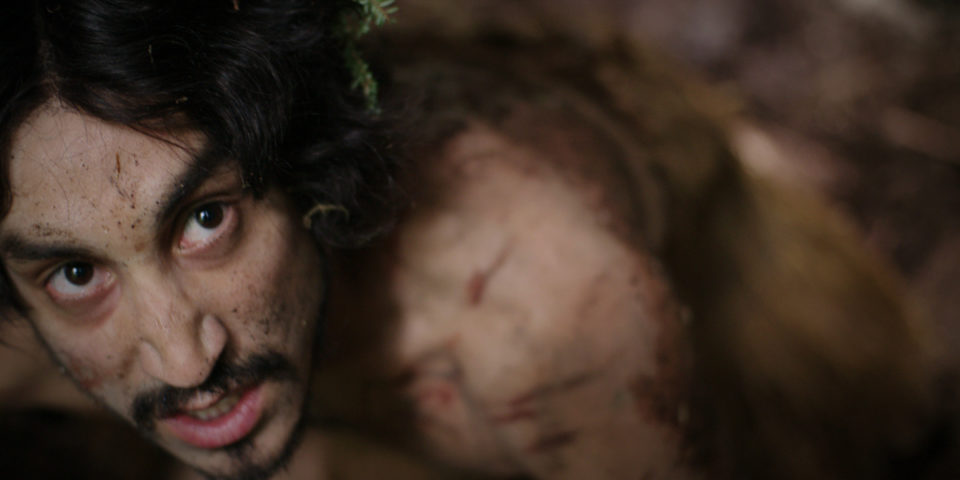
Edge of the Knife was the first film to be told in Haida dialects, languages that less than twenty people on the planet still speak fluently. The film, set in Haida Gwai in the 1800’s, follows the classic story, shot with beautiful cinematography, of the Wildman (from Haida legend) who haunts the land. In making their film, co-directors Gwaii Edenshaw and Helen Haig-Brown achieved the colossal: preserving a culture. The world premiere for this film was easily the most moving of all the events at this festival as the cast and crew spoke passionately about their film collective, one vastly different from the usual hierarchal film sets. The most wonderful element of the film, for me, was the attention paid to the grandmothers, the nonnies who shone through the screen. An audience member wanted to know what it was like working on the set.
“I’ll speak briefly and pass it off to others because I don’t know what it’s like to be on any other film set. Working with my nonnies, I thought I was the boss but we all know who is really the boss in those situations.”
-Gwaii Edenshaw, co-director, Edge of the Knife
When titles fit…

“I’m always thinking about people hundreds of years from now; what will they say of us? They will say, I think, “These people were living at the time of the fall of the American empire.”
-Denys Arcand, director
When dumb questions are permitted…
Looking back at the film right now, is there any scene you would have done better, says one audience member at The Hummingbird Project premiere (as the rest of us mutter, geez)
“If you’re a sane actor, the answer would be all of it. I haven’t watched myself in a movie in ten years for that reason. I can’t look. I’m so mortified by it. The only analogy I can possibly give you with regards to judging myself is when you go on a vacation and you take, like, 100 photos and then you look at the photos and you think, I’ll send maybe two of them to people, as I hate the way my neck looks in the other 98. That’s the way I feel about movie acting. To answer your question, I wish I could do better always. “
-Jesse Eisenberg, star of The Hummingbird Project
When they won’t stop asking female performers about being mothers…and the actor in question handles it with grace.
Carey Mulligan is one of the standouts this year in actor Paul Dano’s directorial debut, Wildlife.
“I’m more tired now and have less time to indulge in lots of research. The bar has been set so much higher with what I do want to do because I don’t want to be away from my children so when the opportunity to work with someone like Paul and make a film like this and get a role that’s this rich, detailed, complex, and truthful that is now the barometer for everything I do now. I want it to be as as good an experience as this, with as good a director, as good a script.”
-Carey Mulligan, star of Wildlife
When there’s no pretty faces in your film…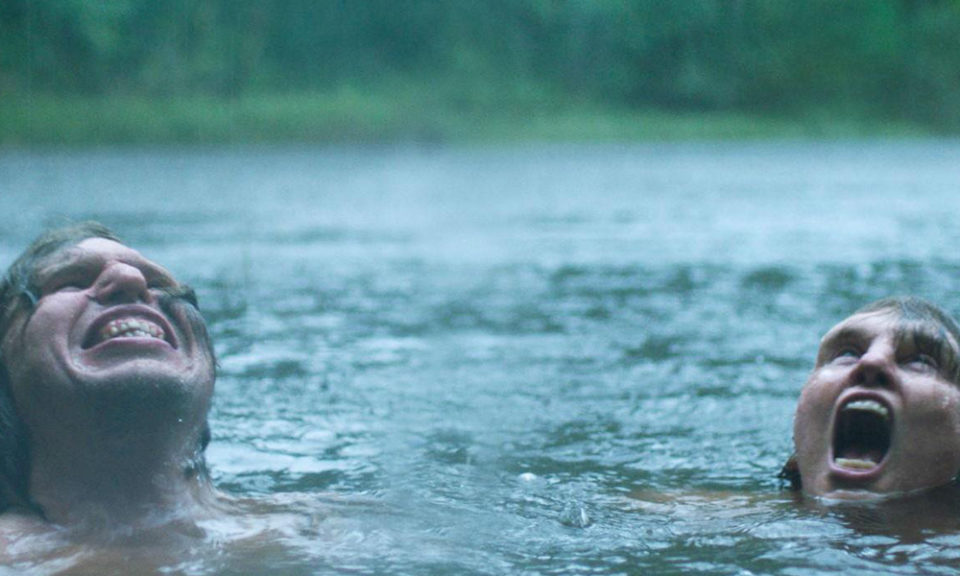
The Swedish fantasy film, Border, written and directed by Ali Abbasi, features two unusual looking characters inspired, in part, by Nordic folklore.
“The film has different ambitions. At the core of it what I found important and subversive about the project was that every time you see people in movies they tend to be perfect. You see a CSI episode and the lab assistant is beautiful with perfectly symmetrical features. I’m not super beautiful and perfect and I know a lot of people that aren’t, in fact the majority of us, right? Every time you see a person who is fat or ugly or whatever they tend to be villains or some kind of comic relief. Here we have a chance to actually take characters and give them an arena where they can experience an emotional life, one that you can engage with. Hopefully, if we’ve done our job right, the movie, somewhere in its course, you, the viewer, will start to see the the beauty in them as well. That kind of experience, I would love for everyone else to have, to look at The Other and see how they feel and not just look back and observe them.”
-Ali Abbassi, writer/director, Border
When you’re 27 and “a miserable lawyer, and you have a script burning inside you but you’re living the life expected of you and you don’t want to take a risk and be estranged from family and community and be seen as implicity rejecting everything that was offered to you” …
One of my favourites at this year’s TIFF, Wild Rose was written by Glasgow-born Nicole Taylor, among the more inspiring female screenwriters heard from at this year’s festival. On stage at the world premiere of her latest creation, Taylor (former lawyer, now successful screenwriter) spoke passionately about what she hopes are universal themes.
“I feel so many people, almost everyone, has had a relationship with their home town where they feel they can’t be themselves there, they’re not allowed to be themselves, and of course you want to leave, but if you leave you take yourself with you. If you ever want to be an authentic, coherent person, especially if you ever want to sing a song, or write a screenplay, you’re going to have to find, no matter how far you get from your home town, you’re going to have to find some way of integrating who you are and where you came from to where you’re trying to get to. I suppose in the broadest, most self-indulgent sense, this film for me was making my piece with Glasgow.”
-Nicole Taylor, screenwriter, Wild Rose
When there really is a wizard behind the curtain…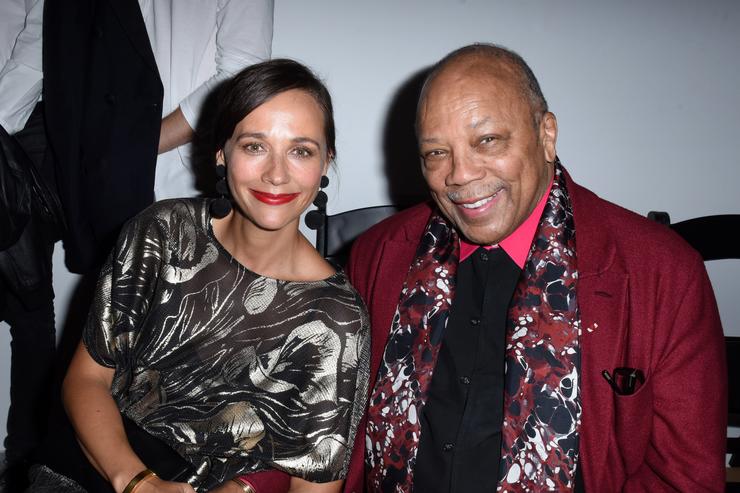
One dazzling event was surely the premiere of Quincy, a documentary about the long career of the prolific musician Quincy Jones, mined from 2000 hours of archival footage and 800 hours verité footage. The film is pure inspiration. Jones, now 85, whip smart ever still, joined the directors, which include his daughter, on stage after the film screened. Asked if there were any surprises to discover from making this doc after growing up with her dad, co-director Rashida Jones:
“I think it was the consistency of this pattern that he pushed himself to the limit every day to the point of, sometimes a heath crisis, or a nervous breakdown or whatever it was, and then every single time managed to survive, reset, recalibrate and make a decision to live his life a different way. He’s done it over and over again. You’ve had a lot of lives, Dad.”
-Rashida Jones, co-director, Quincy
(beat)
“Don’t stop until you get enough”*
-Quincy Jones
When the food nazi is sleeping on the job…
There I was, waiting for the film to start in my seat, munching happily on my green apple, one of the delights discovered in a treats bag given to me by one of my cherished TIFF buds, who handed it over outside in the lineup as if it was the normal thing ever instead of the thing that likely saved you that day. (That and the scarf you bought in two seconds from downtown Winners when you realized the weather had changed while you were inside the theatre: just another typical day in Canada).
“You there, yes you, there’s no food or drink in the theatre!”
Mr. I’m in Charge admonished, pointing at me with everything but a spotlight, me there in my seat, with my mouth full of apple. Clearly, the chocolate chip cookies in said snack bag called for stealth.
Stealth was on holiday for a screening another day at the Princess of Wales theatre, which surely has not seen pyjama clad patrons in those velvet seats very often. In a crowded house, nobody cares what you wear but what you eat? Perhaps I should have guessed their backpacks had some treats as a trio plunked down beside me. As appetizers, a pickle jar passed between them for the first half, before an entreé of odorous sandwiches, followed by dessert of peanut butter from those tiny samples given at diners, licked one finger at time, all relished with a soundtrack running parallel to the one on the big screen in front of me. Cursing is free in your head.
Kindred spirits are everywhere if you’re looking in the right place:
When the lights are down, and we’re bombarded with sponsor messages ( Hey L’Oreal, yes I am worth it, but your models sure don’t look like me, or anyone else I know) , volunteers let the RUSH line in and there is a scramble to fill any empty seats. Done properly by a highly capable volunteer quad, the rest of the theatre doesn’t even notice. Done poorly, and the volunteer flashlights and whispering into the first minutes of the film becomes an annoyance. Still, I had to smile in recognition at one last minute elderly fan wearing rad sunglasses who arrived in the darkened theatre after all of us were seated. On her head, a Tilley hat, and no, she didn’t remove her sunglasses as she realized the one seat remaining was smack in the middle of the second row down in the front.
“Can you please get up so I can just climb over and get to that seat?,”
The ask was a bold one, as she pointed to the seat holders in front of her. Request granted. Over she hopped nimbly; up went her arms in triumph. Yes, we all cheered. It was that kind of day, that kind of audience. These are my peeps.
*Yes, you were paying attention. That is the line of Michael Jackson’s hit, produced by Quincy Jones. Turn up your volume.



